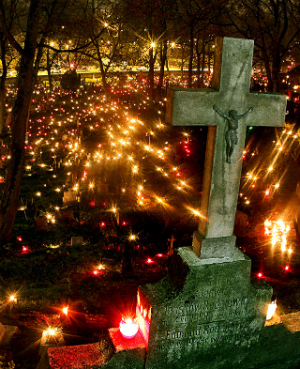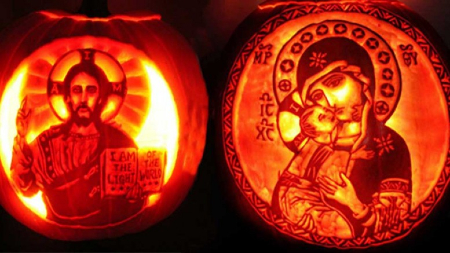We ask you, humbly: don't scroll away.
Hi readers, it seems you use Catholic Online a lot; that's great! It's a little awkward to ask, but we need your help. If you have already donated, we sincerely thank you. We're not salespeople, but we depend on donations averaging $14.76 and fewer than 1% of readers give. If you donate just $5.00, the price of your coffee, Catholic Online School could keep thriving. Thank you.Help Now >
Florus
FREE Catholic Classes
A deacon of Lyons, ecclesiastical writer in the first half of the ninth century. We have no information regarding the place of birth, the parents, or the youth of this distinguished theologian ; but it is probable that he came from the neighbourhood of Lyons, not however from Spain, as some scholars have asserted. A letter to Bishop Bartholomew of Narbonne, written between 827 and 830 and signed by Florus as well as by Archbishop Agobard and the priest Hildigisus, furnishes us with the first positive information we possess of his history ("Mon. Germ. Hist.: Epp. V, 206 sqq.). He was then a deacon of the church of Lyons, which office he continued to hold throughout his life. From the fact that at this time he already enjoyed a reputation as a theologian, we may conclude that he was born certainly before the end of the eighth century. That he was then known (827) even outside the boundaries of the church of Lyons is testified by the poetic epistle written about the same time by the youthful Walahfrid Strabo to Archbishop Agobard, in which he speaks of Florus, with an allusion to his name, as a flower the fragrance of which had spread even to the banks of the Rhine ("Versus Strabi Walahfridi", viii, v, 17-24, ed. Dummler "Poetae Carol. aevi", II, 357, in "Mon. Germ. Hist.").
Until about the middle of the ninth century, the deacon of Lyons followed an active literary career he was theologian, canonist, liturgist, and poet. He was considered one of the foremost authorities on theologioal questions among the clergy of the Frankish kingdom; and, in consequence, his opinion was often sought in important ecclesiastical rnatters. When, after the deposition of Archbishop Agobard of Lyons by the Synod of Diedenhofen (835), Bishop Modoin of Autun summoned before the civil power certain ecclesiastics of the church of Lyons, Florus, in his work "De iniusta vexatione ecclesiae Lugdunensis", took issue with Modoin and defended ecclesiastical freedom. Other canonical writings of Florus are his "Capitula ex lege et canone collecta" and his treatise on the election of bishops, "De electionibus episcoporum". Another of his works, "Querela de divisione Imperii" a lament over the dissensions of the realm, was written by Florus when the kingdom was undergoing severe political disturbance occasioned by the strife between Louis the Pious and Lothair. His liturgical writing are: "De expositione Missae", and three treatises against Amalarius ("Opuscula contra Amalarium"). In these latter works the anthor inveighs against the famous Amalarius of Metz , who came to Lyons, in 835, and wished to introduce changes in the liturgy which were disapproved of by Florus. Later, Florus took part in the conflict concerning predestination, which had been stirred up by the monk Gottschalk. Shortly after the Synod of Quiersy, in the year 849, he wrote on this subject, "De praedestinatione" and laid down the doctrine of a twofold predestination, to salvation and to damnation, maintaining at the same time the doctrine of the free will of man. When John Scotus Eriugena attacked this opinion, Florus, commissioned by the church of Lyons, wrote in 852 his work "Liber adversus Johannem Scotum" . He is also the author of commentaries on the Epistles of St. Paul. His next work was the completion of the Martyrology of Bede, to which he made additions for the various days.The chief sources on which he relied in enlarging the work are a manuscript from St-Pierre in Mâcon, and two manuscripts of Echternach and Toul, which may all be found in the National Library at Paris ( manuscripts lat. 5254, 10018 and 10158). On later revisions of the martyrology, these additions have been made use of. Finally, the deacon of Lyons has left a number of poems. After the year 852, no further information definite as to time has come down to us regarding Florus; so that his death may be said, with probable exactitude, to have occurred about the year 860.
Join the Movement
When you sign up below, you don't just join an email list - you're joining an entire movement for Free world class Catholic education.
-

-
Mysteries of the Rosary
-
St. Faustina Kowalska
-
Litany of the Blessed Virgin Mary
-
Saint of the Day for Wednesday, Oct 4th, 2023
-
Popular Saints
-
St. Francis of Assisi
-
Bible
-
Female / Women Saints
-
7 Morning Prayers you need to get your day started with God
-
Litany of the Blessed Virgin Mary
All Saints' Day, Halloween and All Souls' Day: What's the difference?
-

Should Christians Celebrate Halloween?
-

Since when did Halloween become a Christian holiday?
-
ADORABLE: A Little Boy's Heartfelt Lunchtime Prayer
-
Scientists Decode 3,000-Year-Old Babylonian Tablet, Revealing Potential Location of Noah's Ark
Daily Catholic
 Daily Readings for Friday, November 01, 2024
Daily Readings for Friday, November 01, 2024 St. Valentine Berrio-Ochoa: Saint of the Day for Friday, November 01, 2024
St. Valentine Berrio-Ochoa: Saint of the Day for Friday, November 01, 2024 Litany of the Saints: Prayer of the Day for Friday, November 01, 2024
Litany of the Saints: Prayer of the Day for Friday, November 01, 2024- Daily Readings for Thursday, October 31, 2024
- St. Wolfgang: Saint of the Day for Thursday, October 31, 2024
- Memorare: Prayer of the Day for Thursday, October 31, 2024
![]()
Copyright 2024 Catholic Online. All materials contained on this site, whether written, audible or visual are the exclusive property of Catholic Online and are protected under U.S. and International copyright laws, © Copyright 2024 Catholic Online. Any unauthorized use, without prior written consent of Catholic Online is strictly forbidden and prohibited.
Catholic Online is a Project of Your Catholic Voice Foundation, a Not-for-Profit Corporation. Your Catholic Voice Foundation has been granted a recognition of tax exemption under Section 501(c)(3) of the Internal Revenue Code. Federal Tax Identification Number: 81-0596847. Your gift is tax-deductible as allowed by law.







 Daily Readings for Friday, November 01, 2024
Daily Readings for Friday, November 01, 2024 St. Valentine Berrio-Ochoa: Saint of the Day for Friday, November 01, 2024
St. Valentine Berrio-Ochoa: Saint of the Day for Friday, November 01, 2024 Litany of the Saints: Prayer of the Day for Friday, November 01, 2024
Litany of the Saints: Prayer of the Day for Friday, November 01, 2024

